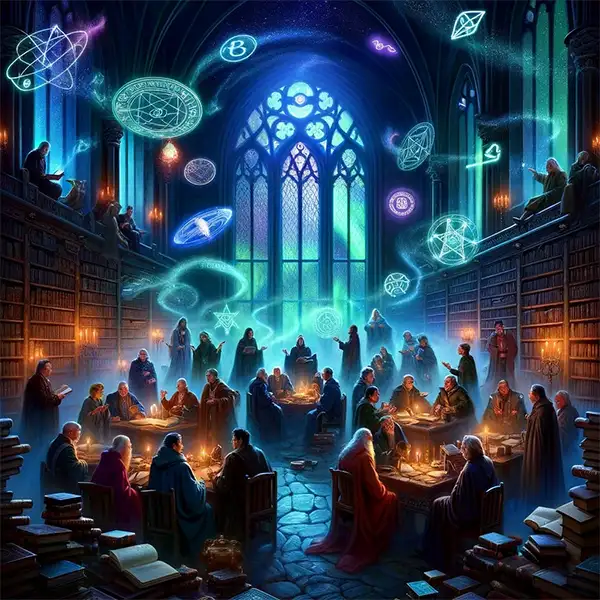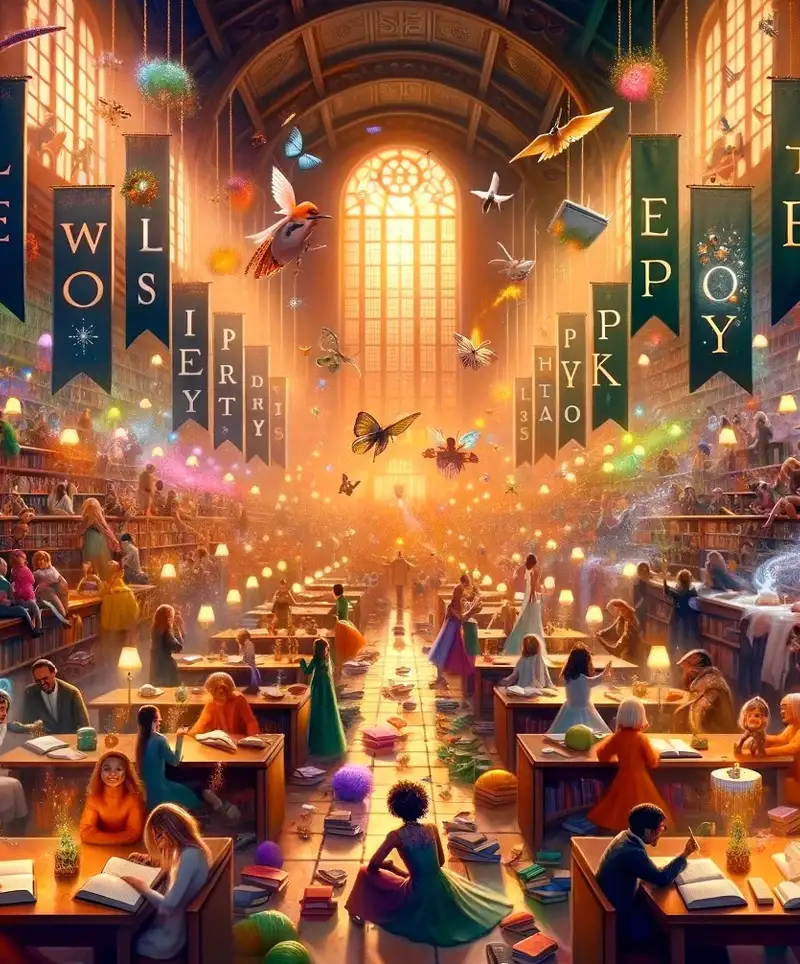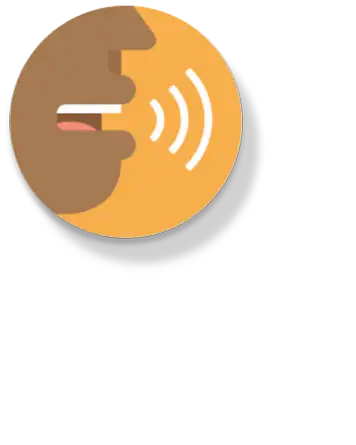The Quirky Chronicles
Greetings, word aficionados and linguistic jesters! Gather around as we embark on a whimsical journey through Words Matter Week's hallowed and hilariously complex corridors. This celebration, an ode to our most cherished and occasionally befuddling companions—words—is not merely a week on the calendar. Oh no, it's a rollercoaster through the lexicon, a time when syntax sparkles and diction delights.
The Genesis of Gab
In the hallowed annals of linguistic lore, the birth of Words Matter Week stands out as a beacon of enlightenment, a clarion call to all who cherish the art of articulation. It wasn't born out of the blue, oh no; it was the result of years—nay, centuries—of linguistic evolution, mishaps, and eureka moments that could fill volumes of untold dictionaries.
Our story begins not with a bang but a whisper—a whisper among the scribes and scholars who first pondered the perplexities of polysemy and the vagaries of verb conjugation. These ancient grammar guardians knew well the power of a well-placed word and the chaos of its clumsy counterpart. From hieroglyphs to emojis, language has always been humanity's most potent tool, capable of building empires or weaving the threads of peace.
 Fast forward to the not-so-distant past, where the advent of digital communication turned the linguistic landscape into a veritable Wild West. Autocorrect mishaps became the stuff of legend, giving birth to a new genre of comedic relief but also highlighting the fragile beauty of human communication. Amidst this backdrop of technological tumult, a group of intrepid language lovers saw an opportunity not just for humor but for homage to the cornerstone of human connection: words.
Fast forward to the not-so-distant past, where the advent of digital communication turned the linguistic landscape into a veritable Wild West. Autocorrect mishaps became the stuff of legend, giving birth to a new genre of comedic relief but also highlighting the fragile beauty of human communication. Amidst this backdrop of technological tumult, a group of intrepid language lovers saw an opportunity not just for humor but for homage to the cornerstone of human connection: words.
On a moonlit night, under the auspices of Aurora Borealis (or so the legend goes), a conclave of linguists, authors, poets, and educators—dubbed the Word Wizards for their uncanny ability to rescue dangling participles from the brink of disaster—gathered. Their mission was clear: to inaugurate a time dedicated to celebrating the complexity, the curiosity, and the sheer fun of language. Words Matter Week was their brainchild, a tribute to their belief that in every syllable lies a story waiting to be told.
The founding of Words Matter Week was marked by the creation of the Charter of Chatter—a document as mythical as it is metaphorical, outlining the core principles of the celebration. This charter declared the importance of clarity in communication, the joy of jest in wordplay, and the paramountcy of puns in the preservation of linguistic levity. It was a call to arms (or, more aptly, to words), inviting all who wielded a pen, tapped a keyboard, or simply marveled at the magic of a well-turned phrase to join in the festivities.
The impact of that fateful gathering rippled outwards, touching every corner of the globe. Schools embraced the week with vocabulary parades, businesses held workshops on clear communication, and families gathered around dinner tables engaging in spirited games of Scrabble and word association. Words Matter Week became more than a date on the calendar; it became a movement, a yearly reminder that words are the threads from which the tapestry of human experience is woven.
A Cavalcade of Celebrations
During Words Matter Week, enthusiasts engage in activities that might baffle the uninitiated. Spelling bees where “antidisestablishmentarianism” is considered a warm-up act. Grammar debates that make the Oxford Comma Controversy look like a mild disagreement over tea. Even poetry slams where participants weave tales so captivating, even the furniture seems to lean in closer.
Pun enthusiasts, or “punthusiasts” as they’ve been known to call themselves, come into their own during this week. These wizards of wordplay host competitions to crown the Pun King or Queen, whose reign lasts until someone else concocts a pun so profound that it causes a collective gasp and an immediate transfer of the crown.
A favorite amongst the wordsmiths is the Malapropism Marathon. Participants deliberately misuse words in ways that would make Mrs. Malaprop herself blush with pride. Imagine describing a particularly pungent cheese as “the epitome of aroma” or referring to a broken dishwasher as “a monumental inconvenience in the archaeology of my kitchen.”
The Verbal Vogue
Fashion also finds its way into the festivities with the “Dress as Your Favorite Word” parade. Here, you might encounter someone draped in feathers and a beak, embodying “Pulchritudinous,” or another in a cape and crown, strutting as “Supercalifragilisticexpialidocious.” The creativity is as boundless as the dictionary itself.
Beneath the laughter and levity, there’s a deeper resonance to Words Matter Week. It’s a reminder of the power of words to uplift, to wound, to unite, or to divide. Workshops and discussions pivot around the significance of respectful dialogue and the beauty of words used well. It’s a time to reflect on our linguistic footprint and the impact our words have on the world around us.

How to Celebrate Words Matter Week
Celebrating Words Matter Week is as creative as the words themselves. It’s an opportunity to let your inner wordsmith shine while engaging in fun, educational, and quirky activities that bring people together in the name of language. Here are some ideas to get you started:
- Host a Word-Theme Party: Invite friends to dress as their favorite words and play games like Scrabble, Taboo, or even charades where every clue revolves around vocabulary.
- Write a Word-A-Day Journal: Choose an unusual word each day and weave it into your conversations or writings.
- Create Your Own Dictionary: Invent fun words with meanings that only you and your circle understand.
- Join a Poetry Slam: Whether online or in person, let your inner bard shine as you string together clever stanzas.
- Debate the Oxford Comma: Organize a friendly debate and watch as it escalates from a linguistic discussion to a full-blown rhetorical rumble.
- Give Compliments—In Words: Craft beautifully worded notes or compliments and leave them for loved ones or strangers to find.
Fun Facts About Words
Words have fascinating origins, peculiarities, and quirks that make language endlessly entertaining. Whether you're a logophile (lover of words) or just curious, these fun facts will give you a newfound appreciation for the building blocks of communication:
- Longest Word in the Dictionary: The honor often goes to "pneumonoultramicroscopicsilicovolcanoconiosis," which, ironically, is a lung disease caused by inhaling fine silica particles.
- Shortest Sentence in English: “Go.” Two letters, one syllable, infinite potential.
- Palindromes Galore: Words like "racecar" and "kayak" read the same backward and forward, making them the linguistic equivalent of a mirror.
- Shakespearean Shenanigans: The Bard invented over 1,700 words, including "bedazzled" and "swagger."
- Emoji Evolution: The word "emoji" comes from Japanese, blending "e" (picture) and "moji" (character), proving that words are always evolving.
- The Great Typo: The most common typo in the English language is "teh" instead of "the."
As Words Matter Week draws to a close, participants return to their daily lives, but the magic lingers. Misplaced modifiers are met with a smile, and the once-dreaded homophones become sources of amusement. It’s a showcase of the enduring charm and challenge of language.
So, here’s to Words Matter Week—a time when we celebrate the chaos, the clarity, the frustration, and the fun of language. May your adjectives be adventurous, your verbs vibrant, and your nouns as notable as the tales they tell. And remember, in the grand narrative of life, every word counts.
Please Share our Content






 Fast forward to the not-so-distant past, where the advent of digital communication turned the linguistic landscape into a veritable Wild West. Autocorrect mishaps became the stuff of legend, giving birth to a new genre of comedic relief but also highlighting the fragile beauty of human communication. Amidst this backdrop of technological tumult, a group of intrepid language lovers saw an opportunity not just for humor but for homage to the cornerstone of human connection: words.
Fast forward to the not-so-distant past, where the advent of digital communication turned the linguistic landscape into a veritable Wild West. Autocorrect mishaps became the stuff of legend, giving birth to a new genre of comedic relief but also highlighting the fragile beauty of human communication. Amidst this backdrop of technological tumult, a group of intrepid language lovers saw an opportunity not just for humor but for homage to the cornerstone of human connection: words.









 "Sláinte!" is a traditional Irish expression used as a toast, equivalent to "Cheers!" in English.
"Sláinte!" is a traditional Irish expression used as a toast, equivalent to "Cheers!" in English.